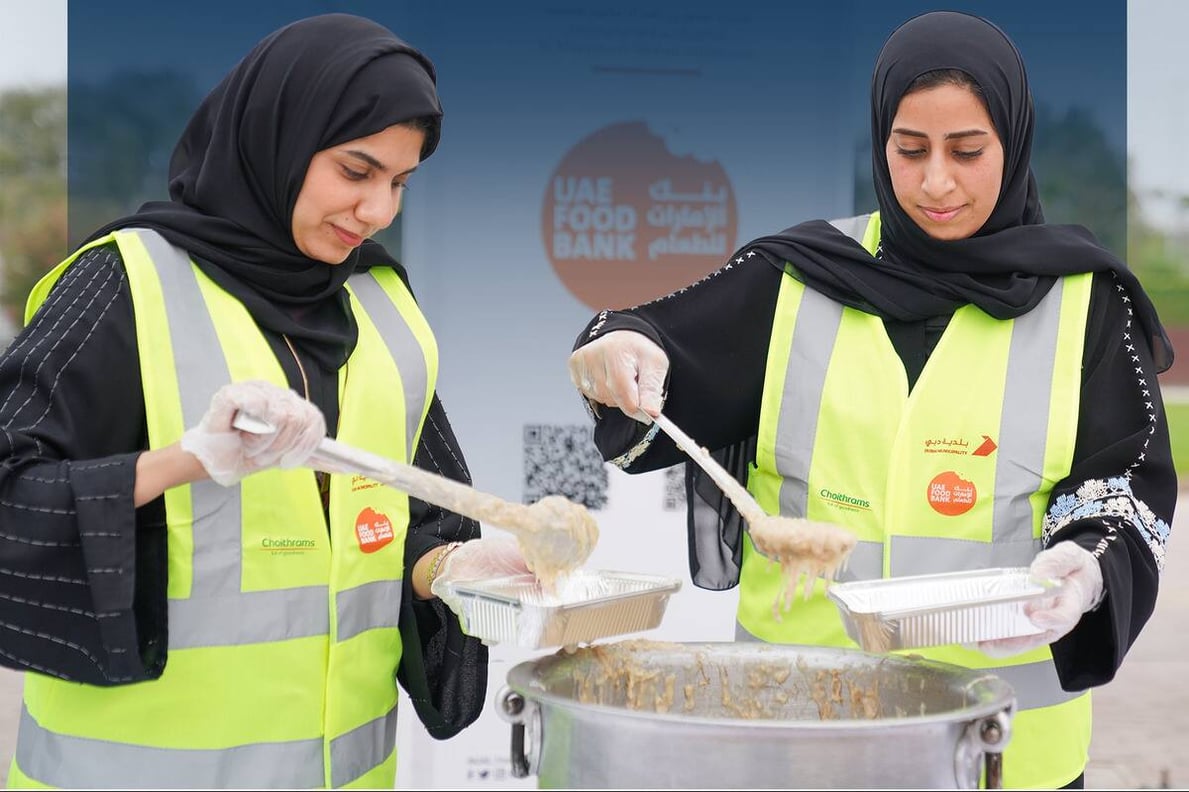The UAE Food Bank (EFB), one of the global initiatives promoted by His Highness Sheikh Mohammed bin Rashid Al Maktoum, Vice President and Prime Minister of the UAE and Ruler of Dubai, has released its annual data for 2024, reporting that its food aid initiatives reached 28.9 million beneficiaries worldwide. This marks a 55 percent increase from 2023, exceeding its performance targets and strategic objectives by over 100 percent.
The UAE Food Bank also made significant progress in its environmental sustainability goals, successfully diverting 5,466 tons of food from landfill. This initiative contributed to reducing environmental pollution and emissions associated with food waste, supporting the UAE’s target of reducing food waste by 30 percent by 2027. By ensuring surplus food is redistributed effectively, the UAE Food Bank continues to promote responsible food management practices that align with global sustainability objectives.
The Bank continued to strengthen its global partnerships through 30 strategic agreements and memoranda of understanding with government entities, humanitarian organizations, and food industry leaders. These collaborations helped expand the Food Bank’s reach and impact, reinforcing its role as a key player in food security initiatives around the world.
Humanitarian relief efforts
As part of its emergency humanitarian relief efforts, the UAE Food Bank delivered 166.7 tons of food to the Emirates Red Crescent Authority, with the bulk of the supplies being sent to Gaza during Ramadan under the ‘Compassion for Gaza’ campaign. In addition, 12.08 tons of food aid were sent to Lebanon under the ‘UAE With You, Lebanon’ campaign, reinforcing the UAE’s commitment to international humanitarian relief efforts.
The number of donors from local and international food organizations also grew to 1,214, reflecting a 52 increase in participation. Alongside its direct food assistance efforts, the Food Bank implemented 157 awareness programs, which engaged 4,357 participants in activities designed to promote responsible food consumption, food waste reduction, and sustainability. Significantly expanding its program in 2024, the Food Bank engaged approximately 5,000 volunteers and active participants to support surplus food management and distribution initiatives aimed at bringing more beneficiaries under its umbrella.
Read more: UAE plays pivotal role in enhancing food security, sustainability: FAO

Aligned with leadership’s vision
Manal Obaid bin Yaroof, head of the Executive Team of the UAE Food Bank, highlighted the importance of the Bank’s ongoing efforts in furthering humanitarian and charitable work, noting that its achievements reflect the philanthropic vision of the UAE’s leadership. She stated that the Bank operates under the directives and continuous guidance of Her Highness Sheikha Hind bint Maktoum bin Juma Al Maktoum, wife of His Highness Sheikh Mohammed bin Rashid Al Maktoum and Supreme Chairperson of the UAE Food Bank, ensuring that critical food aid unfailingly reaches those in need worldwide. She emphasised that the organization remains committed to managing surplus food and reducing food waste in a structured and sustainable manner, in line with its long-term humanitarian objectives.
The UAE Food Bank provided food aid in response to a variety of global humanitarian situations through 2024. Its relief consignments included redistributed surplus food, cooked meals donated by food establishments, and food parcels containing essential items. By the end of December 2024, the total volume of food distributed reached 16,923 tons, with shipped aid including everything from vegetables, fruits, dairy products and meat to grains, pasta, and grocery staples.
Throughout the year, the UAE Food Bank played an active role in several high-profile industry and humanitarian events. It participated in major industry conferences, including the Dubai International Food Safety Conference, Gulfood Manufacturing, and the World Government Summit (WGS). It also took part in several national-level humanitarian initiatives, such as the Suqia Water Initiative, the Eid Al Adha Initiative, and the Billion Meals Endowment.
Promoting social responsibility
The UAE Food Bank continues to operate according to its 2023-2027 strategic plan, which focuses on expanding humanitarian initiatives, forming partnerships to manage surplus food, and supporting national and international food security strategies. The Bank is actively working with Al Naama, government agencies, and other food banks around the world to enhance surplus food management and to provide direct food aid to those in need.
Since its establishment in 2017, the UAE Food Bank has distributed more than 96 million meals, conducted 524 events, workshops, and campaigns, and built a strong network of 262 strategic partners. In addition, it has signed five memoranda of understanding (MoUs) with regional food banks, further strengthening its role as a leader in humanitarian food aid and surplus food management.
With a clear vision for the future, the UAE Food Bank remains committed to expanding its global reach, reducing food wastage in every form, and ensuring that food is delivered efficiently to those who need it most, both in the UAE and around the world.








